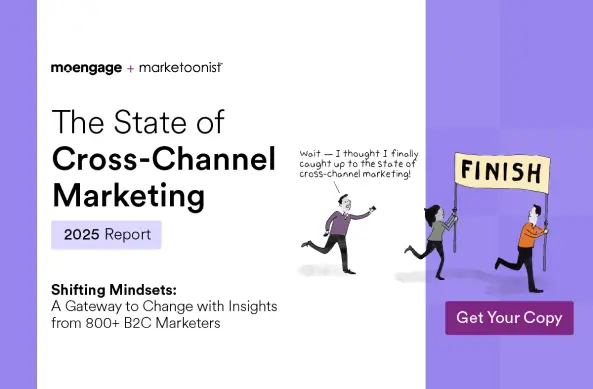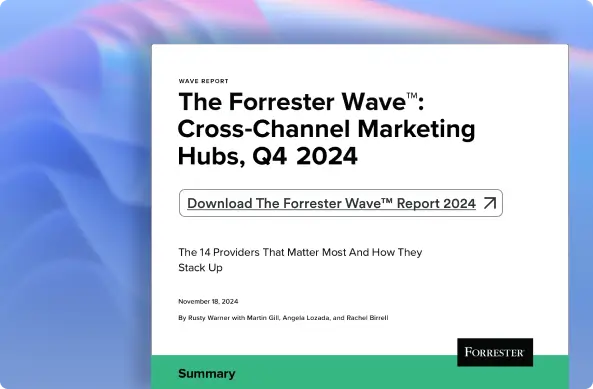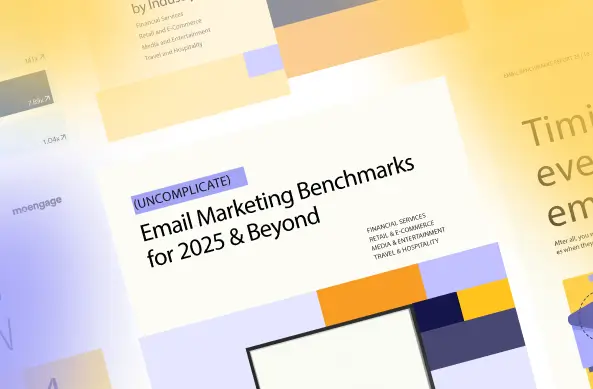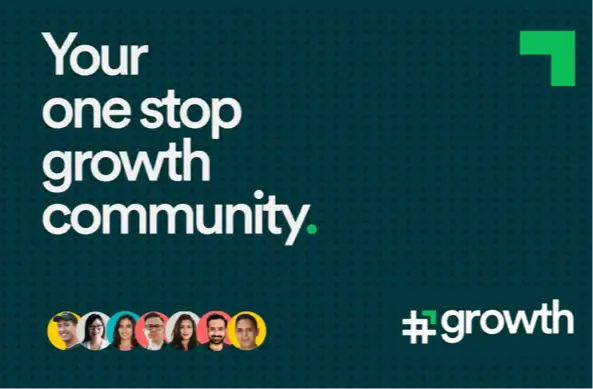[FREE] An RFP Template For Retail and E-commerce Brands To Select The Right Customer Engagement Platform
Download a Request for Proposal (RFP) template tailored for Retail and E-commerce brands to ask the right questions when buying a Customer Engagement platform.
![[FREE] An RFP Template For Retail and E-commerce Brands To Select The Right Customer Engagement Platform](https://www.moengage.com/wp-content/uploads/Customer-Engagement-RFP-Template-For-Retail-and-E-commerce-Brands👇.png)
Reading Time: 6 minutes
In the fiercely competitive world of Retail and E-commerce, capturing and retaining customers’ attention is the key to success.
Retail and E-commerce brands must invest in the right Customer Engagement platform to solve their business needs.
A Request for Proposal (RFP) template tailored for Shopping brands will help you ask the right questions and evaluate multiple aspects when buying a Customer Engagement platform.
Download a Free Customer Engagement RFP Template For Retail and E-commerce Brands Below👇
The RFP template will assist you in picking the right Customer Engagement partner by focusing on vital offerings such as Analytics, Segmentation, Personalization, Omnichannel capabilities, Privacy, Integrations with your existing MarTech stack, Innovation, and Pricing.
Here are the core aspects of a Customer Engagement platform you must evaluate when purchasing the right platform:
1. Analytics
Analytics is the backbone of any Retail and E-commerce business aiming for growth. A Customer Engagement platform should have built-in robust analytics capabilities like:
- Data collection: The platform should be proficient in collecting data from various sources, such as website interactions, mobile app usage, and social media engagement. The platform you pick must also enable you to gather insights about customer preferences, likes, and interests from customer attributes and behavior.
- Actionable analytics: The Customer Engagement platform must be well-equipped to extract actionable insights and patterns that drive informed decisions. You should then be able to act on it immediately by creating campaigns or segments with a single click.
- Real-time reporting: The platform must offer real-time reporting and dashboards. This empowers you to check on the health status of your campaigns and optimize them on the fly based on the latest data. Real-time insights can also help you tweak your product’s UI and UX.
- Unified customer profiles: An effective customer engagement platform should provide a 360-degree view of every customer’s interactions with your brand and across channels and their preferences.
👉 Learn how to supercharge customer experiences with our latest e-book!
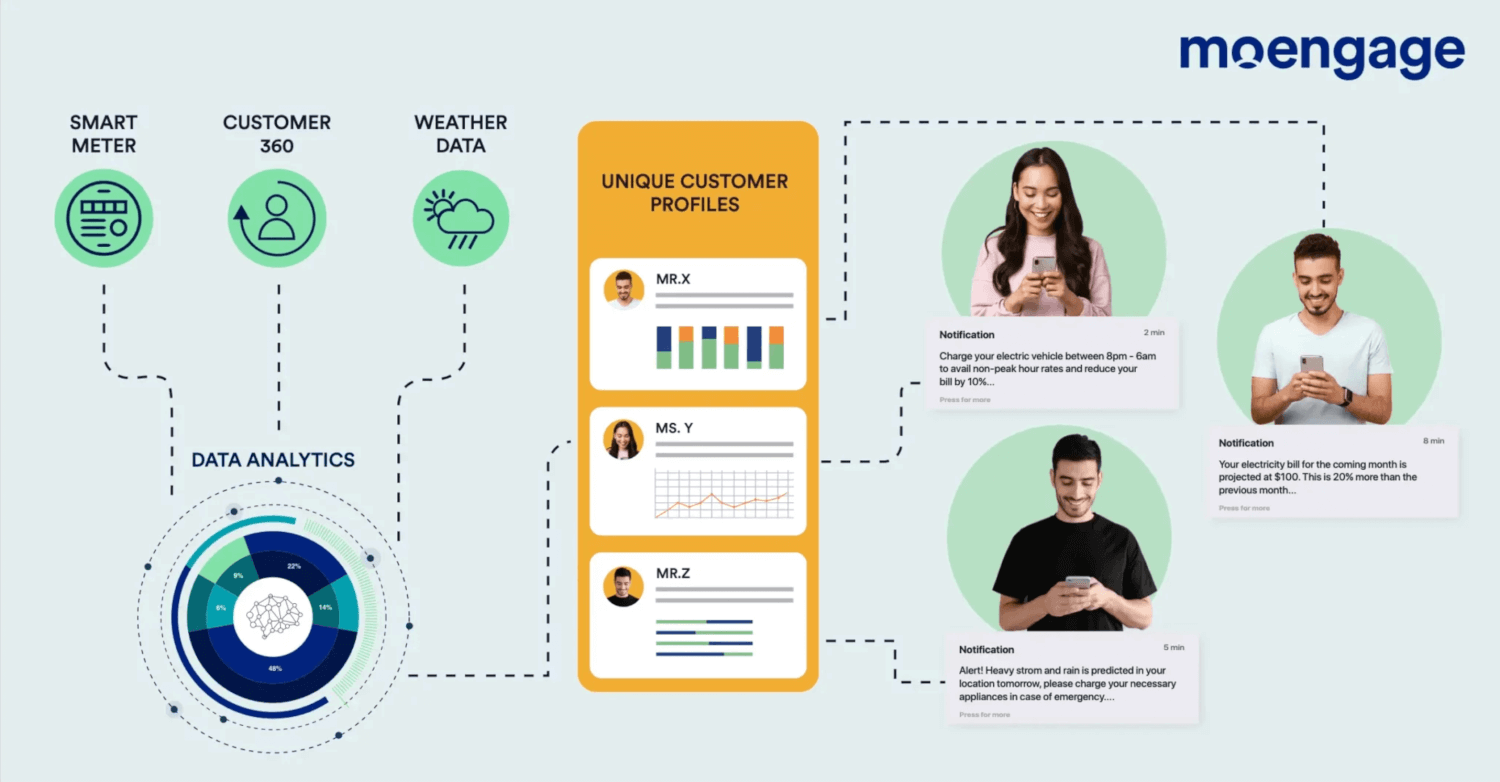
2. Segmentation
Effective segmentation defines the impact of your personalization strategies. A Customer Engagement platform should enable you to create advanced customer segments with features like:
- Audience profiling: The platform should empower you to create customer segments based on demographics, behavior, purchase history, and more. This allows you to create and send tailored engagement campaigns to your customers.
- Behavioral segmentation: You should pick a platform that allows you to identify and reach customers who have performed specific actions on your website or mobile app, such as abandoned carts, frequent purchases, product searches, loan applications, content consumption from a particular genre, and more.
- Dynamic segmentation: An effective Customer Engagement platform should support dynamic segmentation, allowing you to automatically update customer segments based on real-time data, interactions, and customer attributes and preferences.
- RFM segmentation: The platform should assist you in automating and integrating data about the recency, frequency, and monetary attributes of customers to help you curate effective engagement strategies.
👉 Download our whitepaper on RFM segmentation!
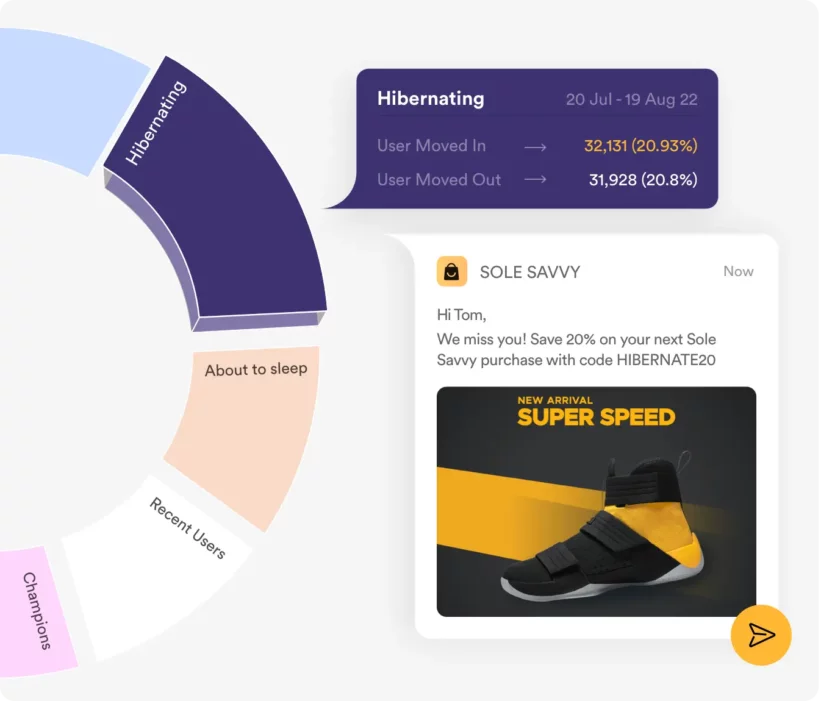
3. Personalization
Personalization has become a non-negotiable expectation in the world of online shopping.
Consumers demand it and get frustrated when Shopping brands do not personalize their experience on and off the platform. You should pick a Customer Engagement platform that helps you with:
- Relevant product recommendations: The platform should offer AI-driven product recommendations, improving both cross-selling and upselling opportunities.
- Content personalization: You should be able to tailor content to each individual. Content includes communication, such as emails, push notifications, SMS, website messages, in-app messages, and more, to each customer’s preferences and behavior.
- Journey personalization: The platform should empower you to customize your customer’s on-platform and off-platform experiences based on which stage of the journey your customer is in – onboarding, first purchase, repeat purchase, dormant, or more.
- Communication personalization: Your Customer Engagement platform must enable you to send messages based on your customer’s preferred time and channel. This is key to achieving true customer-centricity.
4. Omnichannel Journeys
It is crucial for Retail and E-commerce brands like yours to engage customers seamlessly across multiple touchpoints over multiple channels. The right Customer Engagement platform should help you create omnichannel journeys and have the following features:
- Cross-platform consistency: You should have the option to ensure consistent branding and messaging across websites, mobile apps, social media, email, and other touchpoints.
- Offline touchpoint support: The platform should enable you to learn from your customers’ offline shopping behavior to customize their online experiences and vice-versa.
👉 Download a detailed guide to Omnichannel Engagement to learn more!
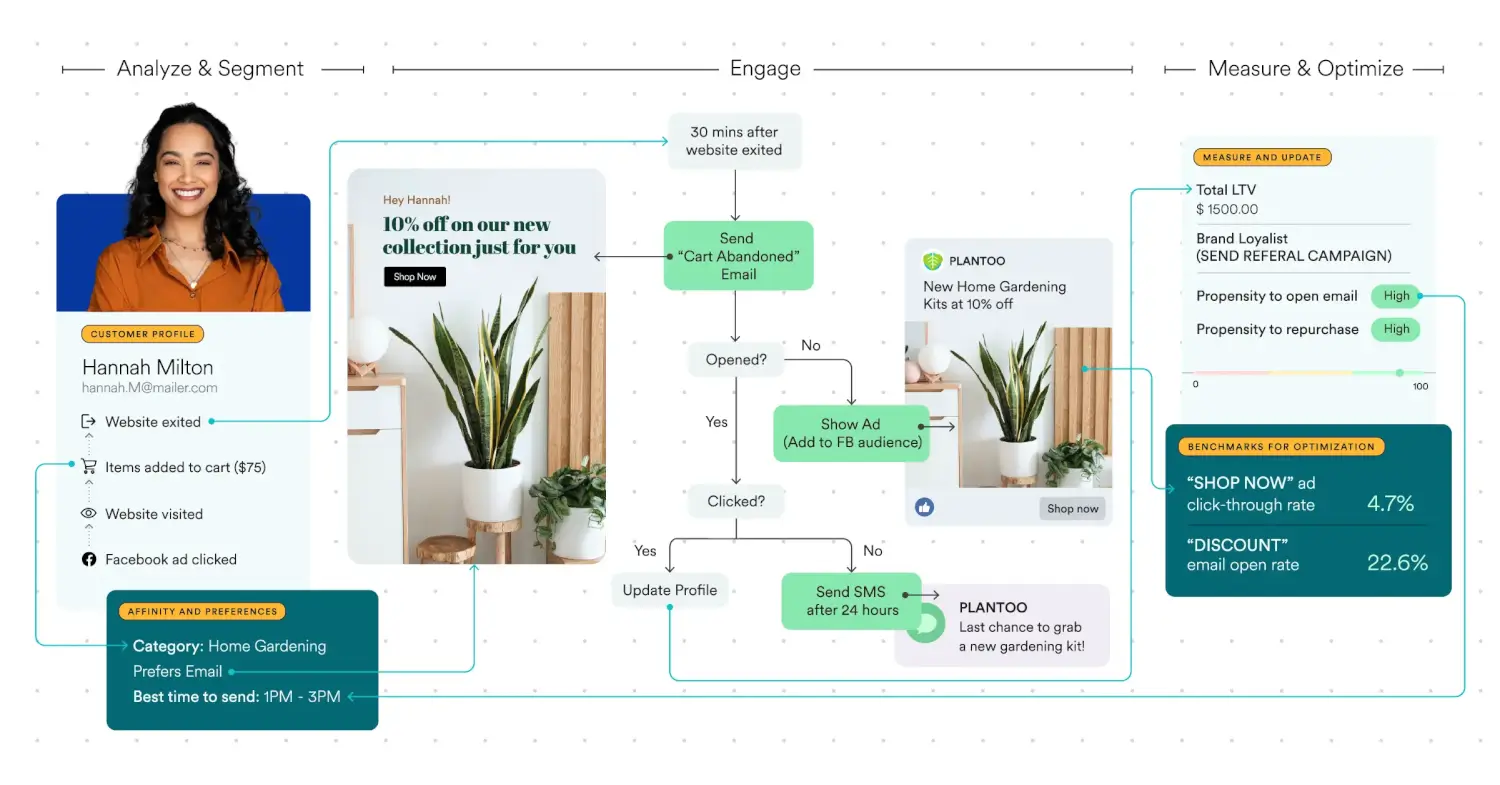
5. Privacy
Data privacy is a top concern for the modern consumer. While consumers are happy to share their information with brands, they are wary about how it is used and stored.
Retail and E-commerce brands need to prioritize the protection of customer information. A Customer Engagement platform must have:
- Compliance with privacy regulations: The platform must adhere to data protection regulations and laws, such as GDPR or CCPA, to safeguard customer data.
- Data encryption: The Customer Engagement platform should be able to encrypt data in transit and store it safely to prevent unauthorized access.
- User access and permissions: A privacy-first platform will ensure you are able to set and customize different levels of permissions based on user roles.
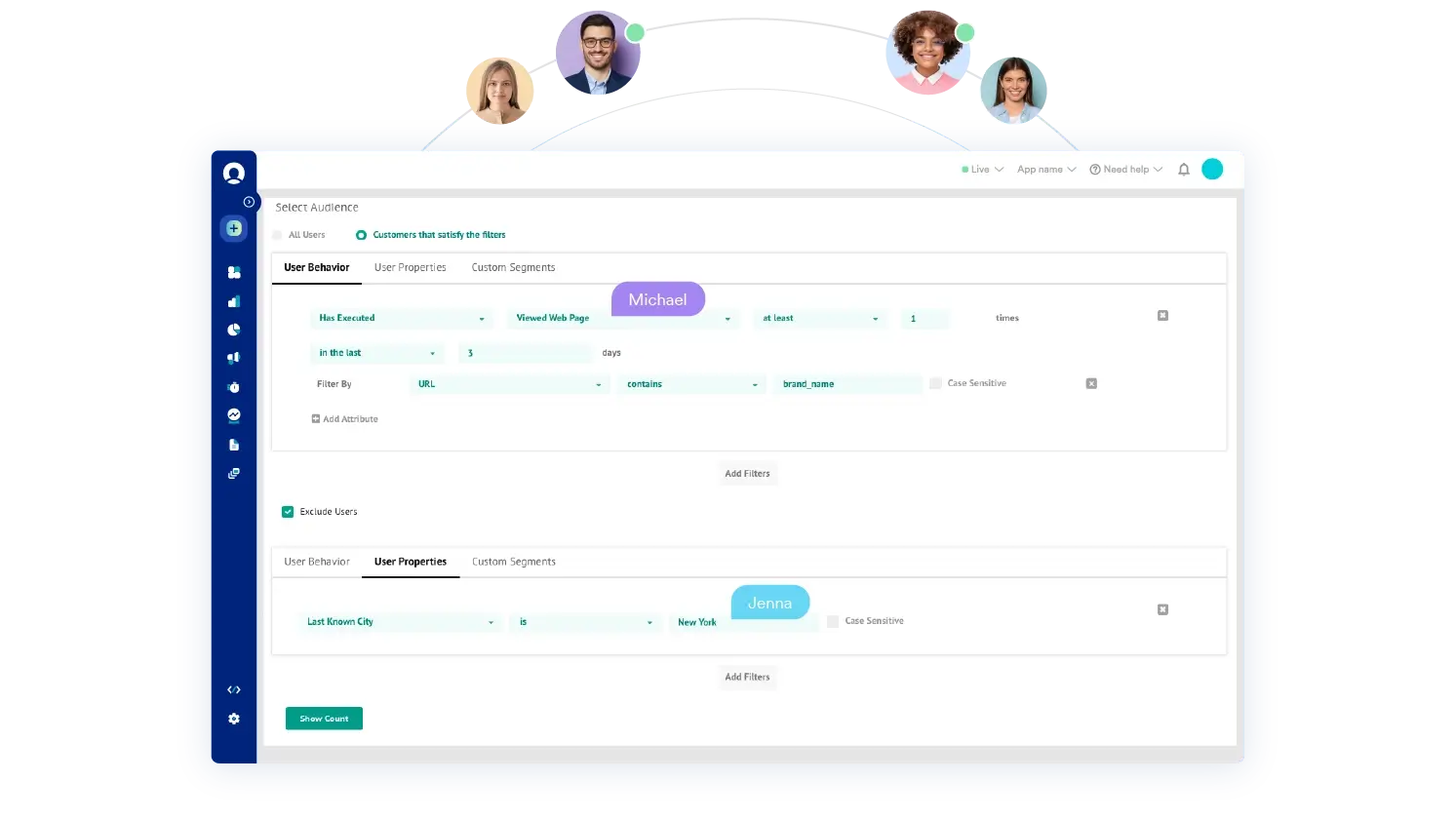
6. Integrations With MarTech Stacks
Retail and E-commerce brands need to rely on a wide range of marketing technologies and build their MarTech stack in a way that helps them automate and optimize processes. The right Customer Engagement platform is so versatile that it can seamlessly fit into your existing or future stack by having features like:
- API integrations: Ensure that the platform you pick can connect with existing marketing tools, such as analytics platforms, loyalty platforms, recommendations engines, CDPs, CRM systems, email marketing platforms, visualization tools, and advertising networks.
- Data synchronization: The platform must be able to establish a clear process for data syncs between all your other platforms in the MarTech stack with minimal error margins.
- Workflow automation: The Customer Engagement platform should have built-in capabilities that allow you to automate marketing workflows and data reporting to streamline operations and reduce manual effort.
👉 Check out the MoEngage App Marketplace!
7. Innovation
To stay one step ahead of your competitors and closer to your customers, you need a reliable Customer Engagement platform built by a team that is constantly innovating and exploring new technologies, keeping your customers in mind.
The right Customer Engagement solution should give you a clear understanding of their innovative capabilities (for example, R&D investments in AI and proprietary Machine Learning algorithms) and items on their future product roadmap.
8. Pricing
Lastly, the right Customer Engagement platforms must meet your assigned budget by disclosing the price structure in a transparent and easy-to-understand format. You must also pick a platform whose pricing accommodates the scale of customers you can attract and retain in the future.
- Transparent pricing: The platform must give you a clear and detailed understanding of the pricing structure. No “hidden charges” must be revealed to you after you’ve started using the platform (such as additional pricing for training or L&D).
- Scalability: You must pick a Customer Engagement platform that supports pricing models that accommodate the future growth of your customer base without unexpected cost spikes. This predictive growth in pricing will help you plan your budget appropriately for future years.
- Customer support: The ideal solution must disclose any additional pricing models for customer support and training options to ensure your current and future team can effectively utilize it.
Conclusion
By asking the right questions, you can ensure you’re selecting the right Customer Engagement platform for your needs. This template can be customized to add or remove questions that are best suited to your organization’s structure and market presence.
The RFP template has questions for each of the following aspects:
| Analytics | Privacy |
| Segmentation | Integrations |
| Personalization | Innovation |
| Omnichannel | Pricing |
About MoEngage
MoEngage is an insights-led Customer Engagement platform built for customer-obsessed brands. Fortune 500 brands and Enterprises across 35+ countries use MoEngage to orchestrate efficient engagement strategies, drive retention, build loyalty, and achieve sustainable growth.

